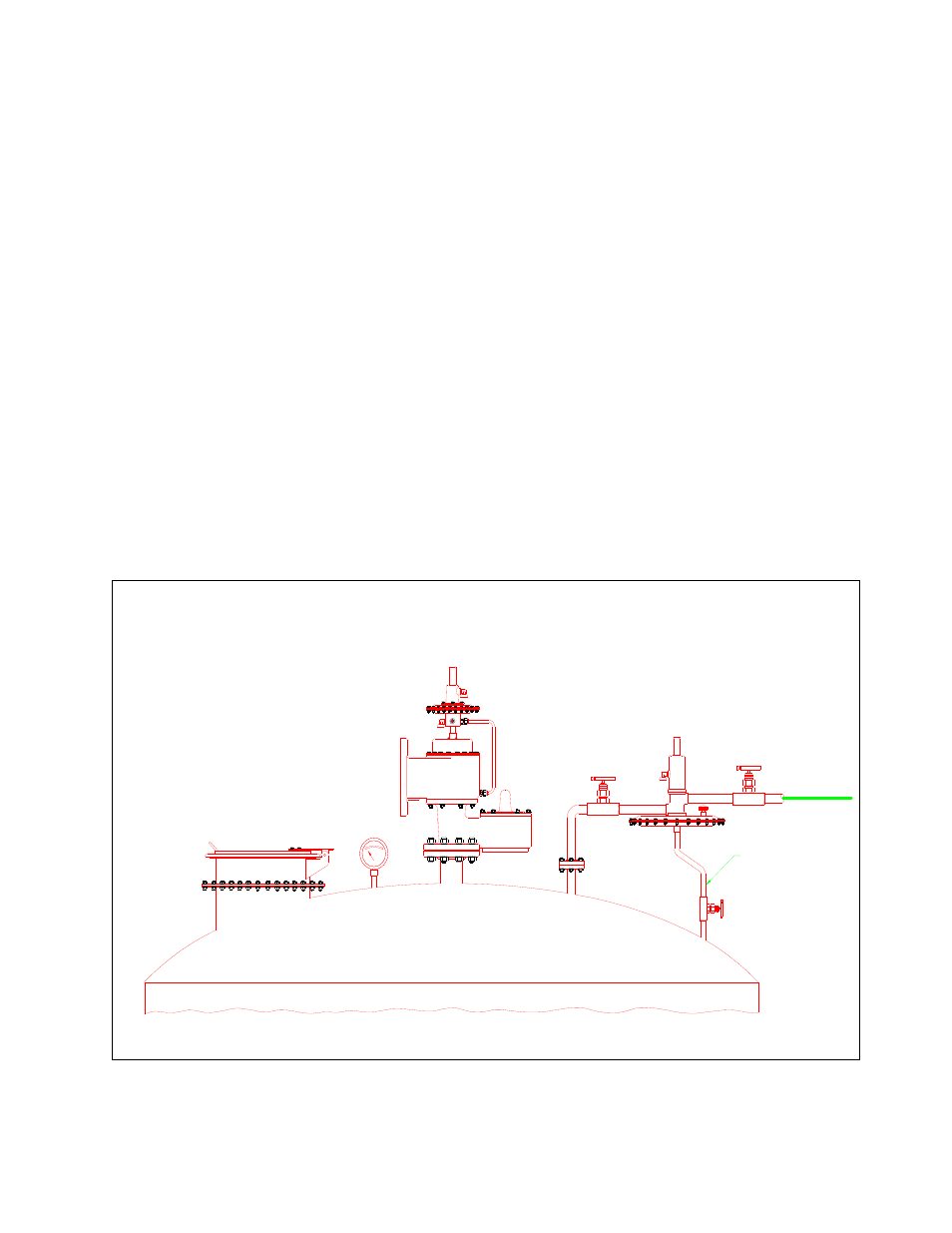Groth 3000 Series User Manual
Page 3

IOM 3000.0
REV. A 12541
*
Note: Some Figures are duplicated for the convenience of the reader
INTRODUCTION
The gas blanketing regulator is one of the principal
components typically installed on a storage tank to
protect the tank and its contents. It is a precision
regulator that is capable of maintaining a very low
gas pressure (1/2" WC minimum) in the tank by
controlling the flow of a high pressure (200 PSI
maximum) blanketing gas. It maintains a positive
tank pressure when fluid is pumped out or as fluid
temperature decreases.
Typically nitrogen or another compatible gas is used
to displace the tank product vapors. This reduces
product evaporation and prevents atmospheric
contaminants, including moisture, from entering the
tank, minimizing internal tank corrosion and product
contamination. The use of inert blanketing gas
minimizes air pollution due to leakage or emergency
venting.
In addition to the blanketing regulator, a tank must be
protected from structural damage by pressure and
vacuum relief valves. A typical tank installation is
shown in Figure 1 which includes the regulator, a
pressure vacuum relief valve and an emergency
pressure relief valve. Groth Corporation
manufacturers all of these devices.
The regulator must be carefully maintained by a
knowledgeable valve technician. It should only be
assembled under clean conditions, preferably in a
shop environment. Carefully read and understand
this manual before attempting to adjust set pressure
or flow capacity, or repair the regulator. Groth
Corporation offers repair services for all products
manufactured by the Tank Protection Division.
Figure 1: Tank Installation - Safety Equipment
GAUGE
EMERGENCY RELIEF VALVE
GROTH MODEL 2400
PRESSURE/VACUUM
RELIEF VALVE
GROTH MODEL 1420
GAS BLANKET REGULATOR
GROTH MODEL 3000
BLANKET
GAS
SUPPLY
SENSE LINE
